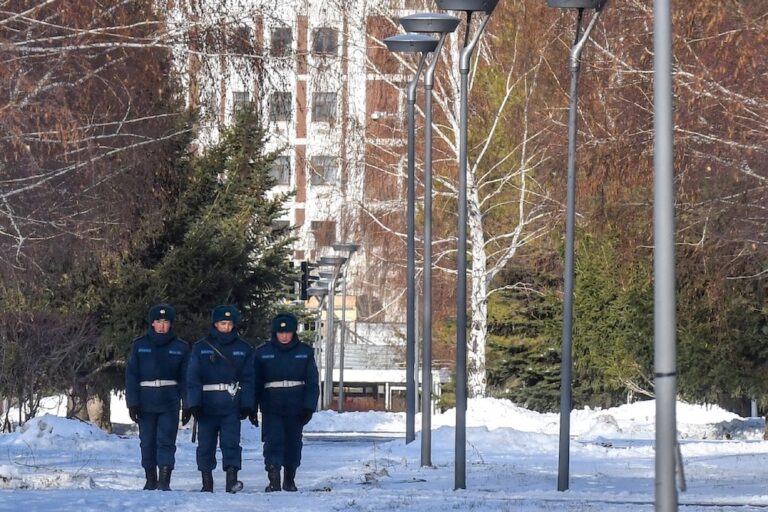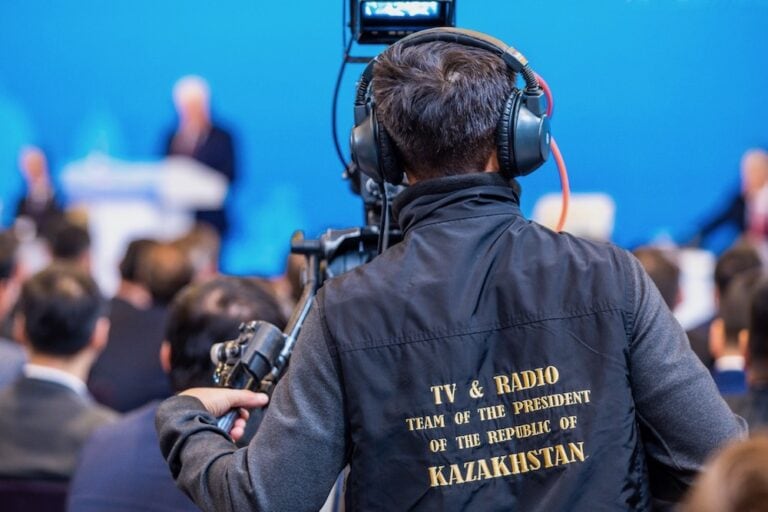(RSF/IFEX) – Kazakhstan’s two main Internet Service Providers (ISPs), KazakhTelecom and NurSat, have been blocking access to the popular blog service LiveJournal since 10 October 2008 without explaining why, Reporters Without Borders said on 15 October. The reason seems to be a LiveJournal blog ( http://rakhataliev.livejournal.com ) by the president’s former son-in-law, Rakhat Aliev, that […]
(RSF/IFEX) – Kazakhstan’s two main Internet Service Providers (ISPs), KazakhTelecom and NurSat, have been blocking access to the popular blog service LiveJournal since 10 October 2008 without explaining why, Reporters Without Borders said on 15 October. The reason seems to be a LiveJournal blog ( http://rakhataliev.livejournal.com ) by the president’s former son-in-law, Rakhat Aliev, that criticises the government.
“The ISPs must either restore access to the LiveJournal service or refer the problems posed by the offending blog to the courts,” Reporters Without Borders said. “Blocking the entire blog service is very negative for Internet usage in a country where there are already very few Internet users.”
The former son-in-law of President Nursultan Nazarbayev, Aliev is one of the most controversial figures in Kazakhstan, which has requested his extradition from Austria. Associates of Aliev created the blog in June, and since then he has been using it to post entries with details such as transcripts of past telephone conversations that are compromising for some of the country’s politicians.
Appointed Kazakhstan’s ambassador to Austria in January 2007, Aliev was fired six months later by Nazarbayev but he remained in Austria. The Kazakh authorities then issued a warrant for his arrest for the January 2007 abduction of two senior bank officials in Kazakhstan and requested his extradition.
Only 2.7 percent of the Kazakh population has an Internet connection. Since 2004, ISPs have been required to have a licence issued by the Agency for Information and Communication, which controls new technology development in Kazakhstan. One of the conditions for getting a licence is to use at least part of the network of KazakhTelecom, which is entirely state-controlled.
Reporters Without Borders added, “This blocking also affects Kyrgyzstan, which depends on the Kazakh Internet. This is a deliberate act of censorship that is intended to have a dissuasive effect.”
Kyrgyzstan has one of Central Asia’s highest levels of Internet penetration (5 percent) but most of its ISPs depend on Kazakh, Chinese and Russian Internet.


